Line Cook vs Prep Cook: Key Findings
- Line Cooks earn more due to greater responsibility.
- Prep Cooks often move into Line Cook roles.
- Prep Cooks work before service, Line Cooks during service.
Line Cook vs Prep Cook: both are crucial in the kitchen, but their roles and career paths differ. This guide explains those differences to help you choose the right fit for your goals.
Line Cook vs Prep Cook: Key Roles in the Kitchen
Over the next decade, the U.S. Bureau of Labor Statistics projects a 16% growth in employment for Cooks, with 480,600 new openings annually.
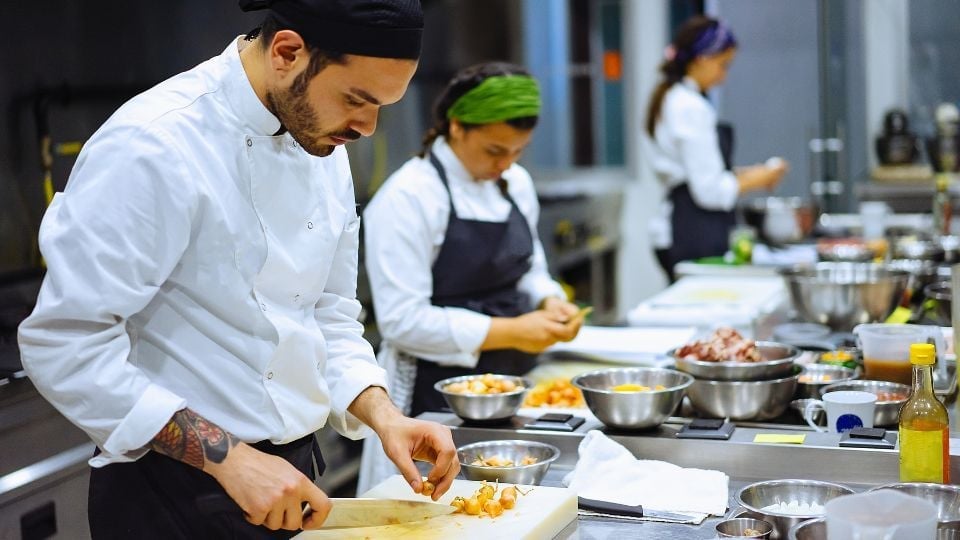
This increase highlights the ample career opportunities available in restaurants ranging from family-owned diners to upscale hotel kitchens.
Among the many roles in the culinary world, Line Cooks and Prep Cooks are foundational to restaurant success. Understanding the differences between these roles is essential for those starting or advancing their culinary careers.
Line Cook vs. Prep Cook: Key Differences
- Seniority: Line Cooks hold a more senior role, managing specific stations, while Prep Cooks focus on ingredient preparation.
- Experience: Line Cooks typically have more training and experience, often starting their careers as Prep Cooks.
- Work Sequence: Prep Cooks work before service to prepare ingredients, while Line Cooks handle cooking during service hours.
- Career Growth: Prep Cooks often transition to Line Cook positions, with opportunities to advance further as Sous Chefs or Head Chefs.
- Salary: Line Cooks earn more due to their experience and role complexity.
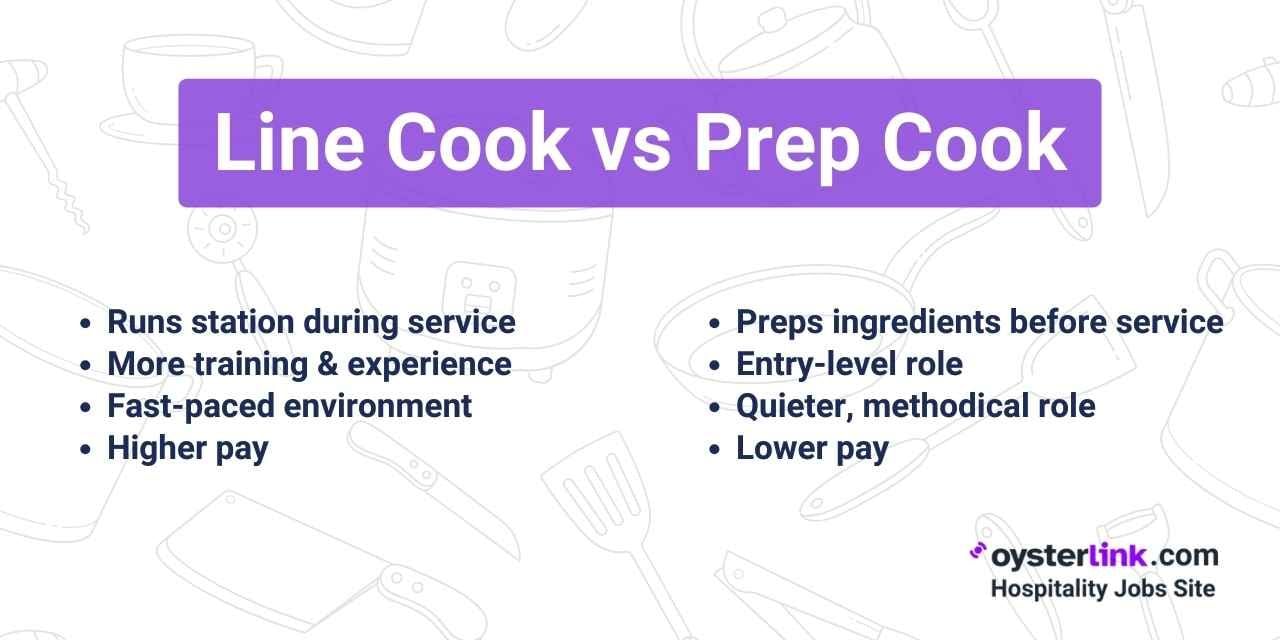
Prep Cooks are entry-level roles that teach kitchen dynamics, knife skills and ingredient preparation.
With dedication, additional training, mentorship from senior chefs or a food safety certificate, they can advance to Line Cook positions, often starting in smaller kitchens before moving to higher-end establishments with specialized stations.
What Does a Line Cook Do?
If you’re wondering what a line cook’s day-to-day looks like, this TikTok video gives a quick glimpse into the role.
Here’s a deeper breakdown of their responsibilities, skills and specialized stations.
Key responsibilities:
- Prepare food according to station assignments and recipes.
- Pass dishes to the next station for completion.
- Maintain clean and organized cooking surfaces.
- Ensure food storage meets safety and sanitation standards.
Skills needed:
- Time management and attention to detail.
- Strong communication for coordinating with teammates.
- Ability to handle high-pressure, fast-paced environments.
Line Cooks often work in specialized stations, and each position demands unique expertise:
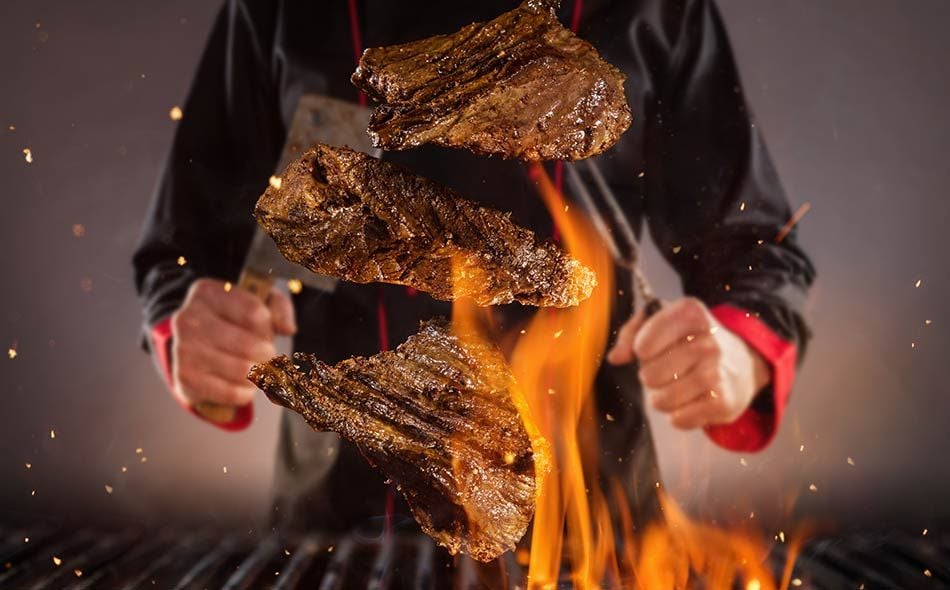
- Sauté Cook: Prepares sautéed dishes and sauces, often working with premium ingredients like seafood or cuts of meat
- Grill Cook: Specializes in grilling techniques to create smoky and perfectly charred dishes
- Fry Cook: Handles all fried items, ensuring precise timing for golden, crisp textures
- Garde Manger (Pantry Cook): Focuses on cold items such as salads, dressings, and charcuterie boards
- Pastry Cook: Crafts desserts and baked goods, often requiring knowledge of precise measurements and techniques
By specializing in one of these roles, Line Cooks can build expertise and eventually advance to Sous Chef or Chef de Cuisine positions.
What Does a Prep Cook Do?
A Prep Cook handles the groundwork for food preparation. They ensure all ingredients are ready for Line Cooks to prepare dishes efficiently during service.
Key responsibilities:
- Wash, chop and measure ingredients.
- Manage kitchen inventory and organize ingredients.
- Prepare components like sauces and seasonings.
- Maintain cleanliness and sanitation in the kitchen.
Skills needed:
- Strong organizational skills.
- Physical stamina for repetitive tasks.
- Attention to detail for precise measurements and preparation.
Line Cooks work in a fast-paced environment during service, while Prep Cooks work in quieter hours preparing ingredients. Both need resilience to handle their roles.
Salary Comparison: Line Cook vs Prep Cook – National & City Averages
| Role | National Average | New York City | Miami | Chicago | Los Angeles |
|---|---|---|---|---|---|
| Line Cook | $34K–$38K | $39K–$43K | $36K–$40K | $35K–$39K | $38K–$43K |
| Prep Cook | $32K–$36K | $34K–$38K | $31K–$35K | $34K–$38K | $32K–$36K |
The salary for Line Cooks and Prep Cooks varies based on experience, location and establishment type. On average, Line Cooks earn more due to their expanded responsibilities and expertise.
The demand for both roles remains steady, with the U.S. Bureau of Labor Statistics projecting a 10% growth in culinary job opportunities over the next decade.
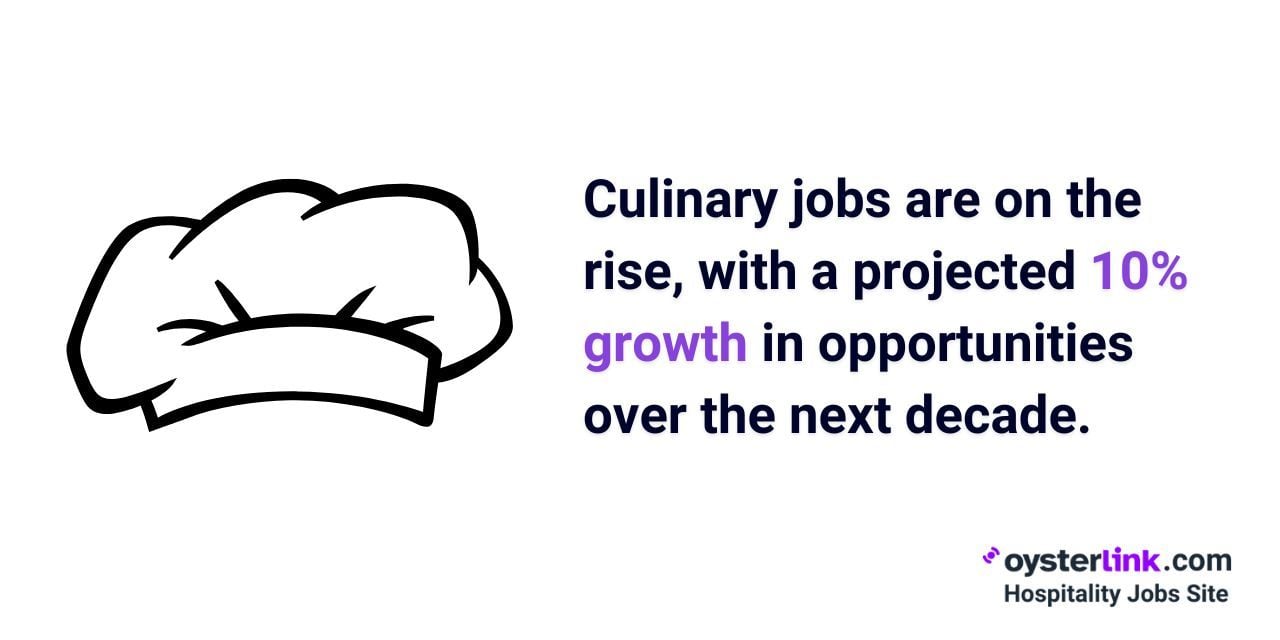
Skills Needed for Line Cooks and Prep Cooks
Both positions require time management to prioritize tasks effectively. Line Cooks often balance multiple orders simultaneously, while Prep Cooks manage ingredient lists to ensure all items are ready for service. Strong knife skills are also vital, as both roles involve precision cutting to maintain consistency.
Additionally, attention to detail is essential for both roles: Prep Cooks must follow recipes accurately, while Line Cooks must ensure dishes meet plating standards and customer expectations.
In addition to the foundational skills, both roles benefit from:
- Adaptability: The ability to adjust to changing circumstances, such as menu modifications or unexpected shortages, is crucial in maintaining kitchen efficiency.
- Cleanliness: Maintaining a clean workstation is vital for food safety and overall kitchen hygiene. Both Line Cooks and Prep Cooks must adhere to strict cleanliness standards to prevent contamination and ensure a safe dining experience for customers.
- Teamwork: Both roles require effective collaboration with other kitchen staff to ensure a seamless workflow and timely service.
By honing these skills, kitchen staff can contribute to a more efficient and harmonious work environment.
How To Become a Line Cook
Here’s a practical video overview to jump-start your journey:
To qualify as a Line Cook, you'll typically need:
- High school diploma or culinary school certificate.
- Food handler safety certification (varies by state).
- Key skills: physical stamina, attention to detail and time management.
Tips for Success:
- Practice station-specific techniques.
- Organize your tools and prepare early.
- Master the menu and prioritize special requests.
How To Become a Prep Cook
If you want to become a Prep Cook, you may not be required to have an advanced level of education, although you may need a food handler safety certification.
However, landing a job as a Prep Cook does require certain skills, such as:
- Basic understanding of cooking techniques.
- Strong organizational and multitasking skills.
- Food safety certification may be required.
Tips for Success:
- Create detailed prep lists.
- Use tools like parchment paper for efficiency.
- Maintain a clean and organized workspace.
Tools and Equipment Used by Line Cook vs Prep Cook
The tools and equipment used by line cooks and prep cooks are tailored to their respective tasks:
- Prep Cooks: Rely on items like cutting boards, Chef’s knives, food processors and peelers to prepare ingredients efficiently.
- Line Cooks: Use sauté pans, grills, flat tops and plating tools to cook and assemble dishes during service.
Understanding and maintaining these tools are critical to ensuring kitchen efficiency. High-quality, well-maintained tools not only improve workflow but also help minimize waste.
Work Environment and Schedule Differences Between a Line Cook and a Prep Cook
Understanding the distinct work environments and schedules of Line Cooks and Prep Cooks can provide clarity for individuals considering these roles.
Work Environment:
- Line Cooks: Operate in a high-pressure, fast-paced setting during service hours. They work at specific stations on the kitchen line, such as grill, sauté, or fry and must coordinate closely with other kitchen staff to ensure timely and accurate dish preparation.
- Prep Cooks: Typically work behind the scenes, focusing on ingredient preparation before peak service times. Their environment is more structured, allowing them to concentrate on tasks like chopping vegetables, marinating meats, and preparing sauces without the immediate pressure of customer orders.
Schedule:
- Line Cooks: Often work during peak dining hours, including evenings, weekends and holidays. Their shifts are aligned with the restaurant's busiest times to manage live orders and ensure efficient service.
- Prep Cooks: Generally have shifts earlier in the day to prepare ingredients before the restaurant opens or before peak service periods. This schedule allows them to complete their tasks ahead of time, ensuring that Line Cooks have everything they need during service.
By understanding these differences, individuals can make informed decisions about which role aligns better with their preferred work environment and schedule.
Line Cook vs Prep Cook: Key Takeaways
A Line Cook holds a more senior role, taking charge of preparing dishes during service. They typically earn higher salaries and have greater potential for rapid career advancement.
In contrast, a Prep Cook is considered an entry-level position, focusing mainly on ingredient preparation, making it an ideal role for gaining foundational kitchen experience.
Both paths offer clear career growth opportunities, with many cooks advancing to Sous Chef or even Head Chef positions. Salaries can vary depending on location, with higher pay often found in high-demand cities like New York and Los Angeles.
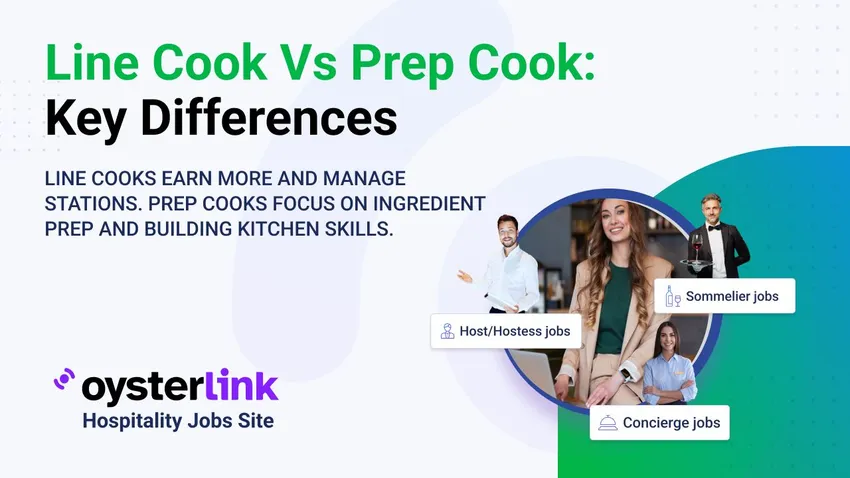







Loading comments...